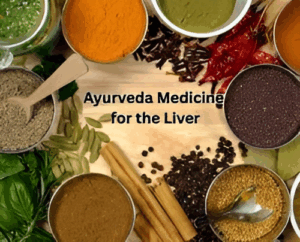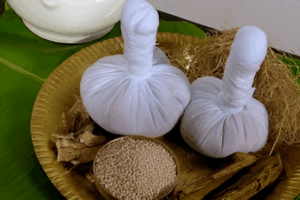Diabetes is a chronic condition that affects millions of people worldwide. Modern medicine offers various treatments, but many are turning to Ayurveda, an ancient holistic system of medicine from India, for alternative solutions. Ayurveda emphasizes balance within the body, mind, and spirit, and it provides natural and effective ways to manage and treat diabetes. In this article, we will explore the types of diabetes, the signals or symptoms to look out for, and the Ayurvedic treatments that can be implemented at home.
Understanding Diabetes
Diabetes is broadly categorized into three types:
- Type 1 Diabetes: This is an autoimmune condition where the body’s immune system attacks insulin-producing cells in the pancreas.
- Type 2 Diabetes: This is the most common form of diabetes, usually resulting from a combination of genetic and lifestyle factors, where the body becomes resistant to insulin.
- Gestational Diabetes: This type occurs during pregnancy and can pose risks to both mother and baby if not managed properly.
Signals of Diabetes
Recognizing the early symptoms of diabetes can lead to early intervention and better management. Key signals to watch for include:
- Increased Thirst and Frequent Urination: High blood sugar levels cause the body to pull fluid from tissues, leading to dehydration.
- Extreme Hunger: Without enough insulin, the body cannot use glucose for energy, prompting increased hunger.
- Unexplained Weight Loss: Despite eating more, the body may still lose weight as it turns to muscle and fat for energy.
- Fatigue: Insufficient insulin means glucose cannot enter cells, leaving you feeling tired.
- Blurred Vision: High blood sugar levels can pull fluid from the lenses of the eyes.
- Slow-Healing Sores or Frequent Infections: Diabetes affects your ability to heal and fight infections.
Ayurvedic Perspective on Diabetes
Ayurveda refers to diabetes as Madhumeha. According to Ayurvedic texts, diabetes is caused by an imbalance in the doshas, particularly Kapha. Ayurveda categorizes diabetes into 20 types based on the predominant dosha imbalance:
- Kapha Type: 10 types
- Pitta Type: 6 types
- Vata Type: 4 types
Ayurvedic Treatments for Diabetes at Home
Ayurvedic treatments focus on restoring balance in the body through diet, lifestyle changes, and herbal remedies. Here are some effective Ayurvedic treatments for managing diabetes at home:
Dietary Changes
- Bitter Gourd (Karela): Known for its blood sugar-lowering properties, consuming bitter gourd juice can help manage diabetes.
- Fenugreek (Methi): Soak fenugreek seeds overnight and consume them in the morning. They are rich in soluble fiber, which helps control blood sugar levels.
- Indian Gooseberry (Amla): Amla is high in Vitamin C and antioxidants. Consuming its juice can help improve pancreatic function.
- Cinnamon (Dalchini): Adding cinnamon to your diet can improve insulin sensitivity and lower blood sugar levels.
- Turmeric (Haldi): Turmeric has anti-inflammatory properties that help manage blood sugar levels and improve insulin function.
Lifestyle Changes
- Regular Exercise: Incorporating physical activities like walking, yoga, and strength training can significantly improve insulin sensitivity.
- Stress Management: Practices like meditation and deep breathing can help reduce stress, which is a contributing factor to diabetes.
Herbal Remedies
- Neem: Neem leaves have been traditionally used for their blood sugar-lowering properties.
- Gudmar (Gymnema Sylvestre): Known as “sugar destroyer,” Gudmar can help reduce sugar absorption in the intestines.
- Vijaysar (Pterocarpus Marsupium): Vijaysar wood can be soaked in water overnight and consumed in the morning to help manage blood sugar levels.
Ayurvedic Treatments and Expertise in Dubai
Dubai has become a hub for alternative medicine, and Ayurveda is no exception. For those looking for professional Ayurvedic treatments, visiting the best Ayurvedic hospital in Dubai is recommended. These hospitals offer personalized treatment plans and expert advice.
Consulting the best Ayurvedic doctor in Dubai can provide tailored guidance and treatments that are specifically designed to manage diabetes effectively. These professionals utilize a combination of dietary advice, herbal remedies, and lifestyle modifications to help patients achieve better health outcomes.
Conclusion
Managing diabetes with Ayurveda is a holistic approach that not only addresses the symptoms but also aims to balance the entire body system. By integrating Ayurvedic dietary recommendations, lifestyle changes, and herbal treatments, individuals can achieve significant improvements in their health and well-being.









